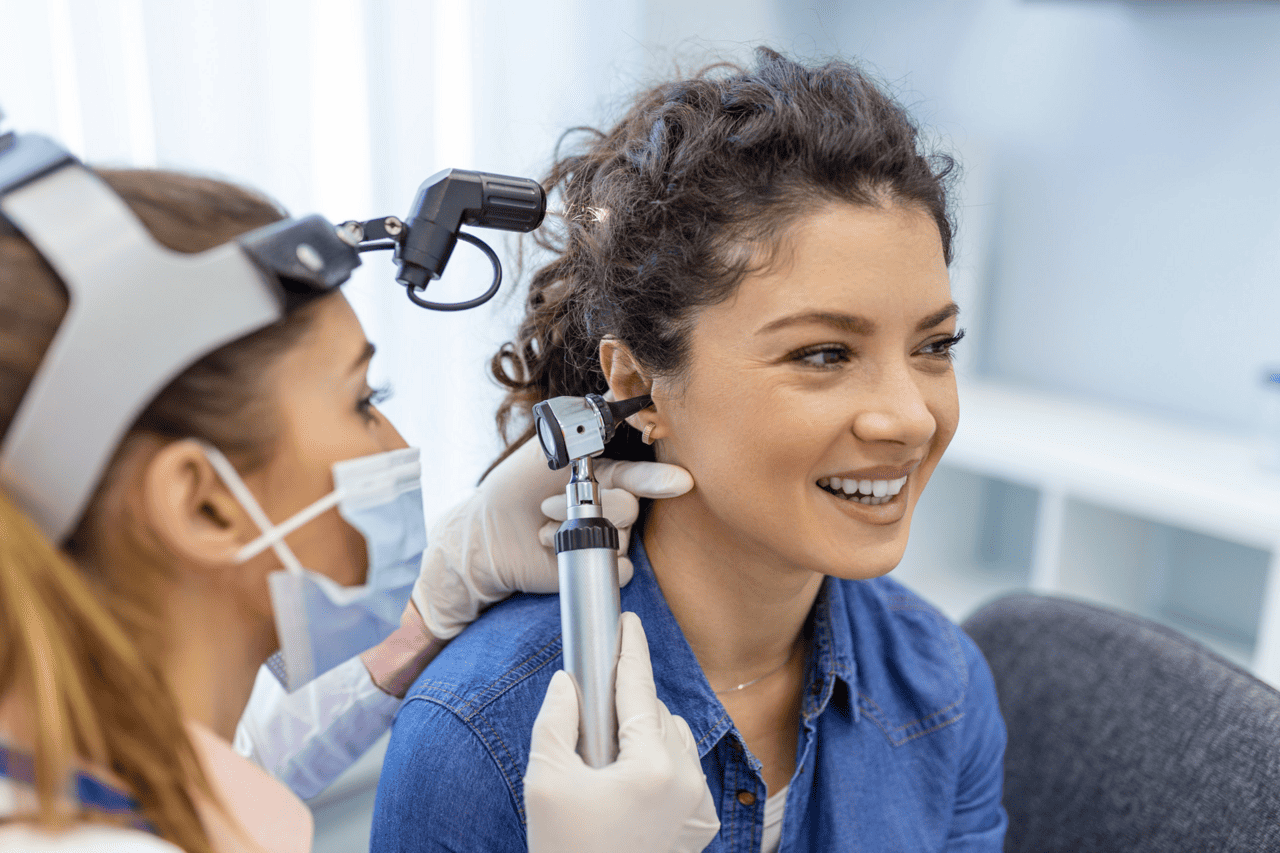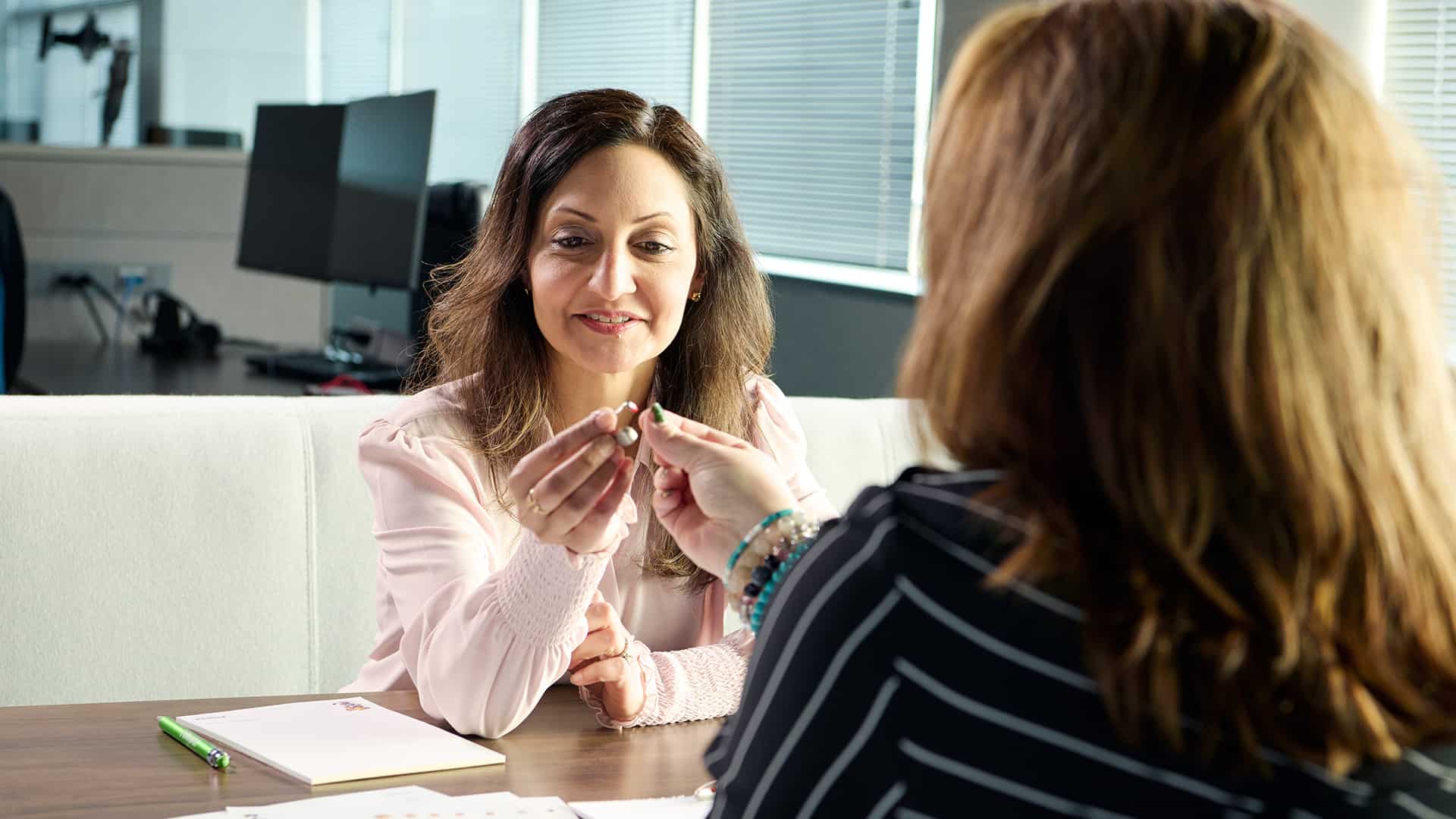Your Phonak hearing aid at unbeatable prices!
A Complete Hearing Test in 5 Steps
A hearing test is a diagnostic exam that is used to comprehensively evaluate your hearing health. This identifies if you have hearing loss, which part of your ear is causing symptoms, and the degree of impairment you are experiencing. A hearing test is performed by an audiologist who specializes in hearing health and ear related conditions. You can expect your appointment to be between 45 to 60 minutes and consist of the 5 steps described in this video and in the text below.
FR
EN

Hearing history
The first part of your hearing consultation appointment will be similar to most medical appointments. You will be asked to complete a questionnaire that assesses your hearing health history. This includes sharing the symptoms you’ve been experiencing and any family history of hearing related issues. You will also be asked about lifestyle factors including the types of spaces you regularly navigate, what your work environment is like, hobbies and activities you participate in etc. These factors can help identify any potential sources contributing to the symptoms you are experiencing. Your audiologist will also describe the testing process and share what you can expect from treatment.

Inspection of ear canal
Next, your audiology will visually examine your ear canal and eardrum. Using an otoscope, an instrument with a light that is designed to inspect the ears, your external ear canal and eardrum will be checked for anything that could contribute to hearing challenges. This includes accumulated earwax, dirt, bone growths, a tare in your eardrum etc. These factors can cause conductive hearing loss which is a temporary form of impaired hearing that can be medically treated. If needed, your audiologist will remove earwax to prevent this from affecting the hearing test.

Hearing test: pure tone audiometry
This test measures the softest sounds you are able to hear. Pure tone audiometry testing involves wearing headphones in a soundproof booth or room. Different sounds – high and low pitched – will be played at various volumes and you will be asked to indicate what you are able to hear by either raising your hand or pressing a button. This identifies your hearing thresholds for sound, revealing the types of sounds that you are able to hear and the sounds that are more challenging for you to hear.
Hearing test: speech audiometry
After your ability to hear and process sounds is evaluated, your audiologist will perform a similar test. Known as speech audiometry, this test focuses on detecting speech rather than sound. This involves listening to and repeating specific words that will be audibly communicated. Speech audiometry evaluates your ability to hear and understand words (speech comprehension). They will identify the quietest levels of speech you are able to hear. This is especially useful in understanding what your hearing challenges are in the context of conversations.

Results, recommendations, and next steps
Once the hearing test is completed, your audiologist will share your results with you. Yoru hearing results will be presented on an audiogram which is a chart that visually represents your hearing capacity in each ear. This includes your hearing thresholds and degree of hearing impairment which can differ from ear to ear. Your audiologist will also recommend effective treatment options to meet your hearing needs.
How often should I get my hearing tested?
The Better Hearing Institute, a non-profit organization, recommends getting a hearing test once every 10 years until age 50, and once every three years after that. Hearing tests are important for keeping track of your hearing health throughout life, and they are the only way to know for certain whether it’s time for hearing aids.
Take our online hearing test
Start by taking a rudimentary hearing test right here, provided by our partner Phonak. We can help you review the results of your online hearing test either over the phone or by email. Depending on the results, we may recommend that you come in for a more accurate test in our sound-proof room. We are happy to test your hearing at no cost and with no obligation to buy hearing aids afterwards.
